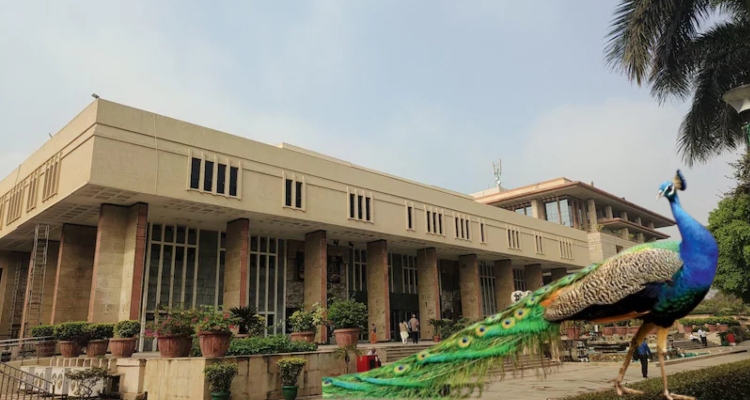
The Delhi High Court on Wednesday dismissed a Public Interest Litigation seeking preventive measures against the electrocution of peacocks—India’s National Bird—caused by exposed electric wires and poles across the capital.
The bench, comprising Justice Devendra Kumar Upadhyay and Justice Tushar Rao Gedela, criticized the petitioner for filing the plea in haste, without giving the relevant authorities sufficient time to respond or act.
Administrative Approach
While the court refused to entertain the PIL in its current form, it allowed the petitioner, Save India Foundation, to continue pursuing the matter through appropriate administrative channels.
The judges made it clear that the issue, though significant, needs to be addressed by the concerned departments first, not rushed through court proceedings.
PIL Highlights
Filed through Advocate Umesh Sharma, the petition emphasized the absence of specific regulations to protect peacocks from electrocution in urban areas like Delhi. It included data reportedly collected on peacock fatalities caused by contact with live wires, citing a pattern of negligence on the part of authorities.
The plea accused DISCOMs of failing to implement proper safety measures while insulating the electrical infrastructure. “They have been insulating electrical installations without adequate safeguards, exposing birds like peacocks to fatal electric currents,” the petition alleged.
Cultural & Environmental Concerns Raised
The petitioner also underlined the ecological and cultural importance of protecting native bird species. It pointed out that Delhi is home to popular bird-watching spots such as the Okhla Bird Sanctuary and Yamuna Biodiversity Park—areas where peacocks and other birds are often seen.
According to the petition, birds like peacocks and parakeets hold deep cultural significance in India and are vital indicators of environmental health. A decline in their numbers, it warned, could reflect broader ecological threats such as pollution, habitat destruction, and unchecked urban development.
Petitioner Free To Pursue Case With Authorities
Although the court declined to pass a judicial order, it has permitted Save India Foundation to raise its concerns directly with the relevant administrative bodies. This route, the court indicated, would be more appropriate and effective for addressing the issue in the current stage.
As the case stands dismissed, the responsibility now lies with local authorities and DISCOMs to examine the concerns raised and consider implementing safeguards to prevent further harm to India’s national bird.
Read More: Supreme Court, Delhi High Court, States High Court, International




